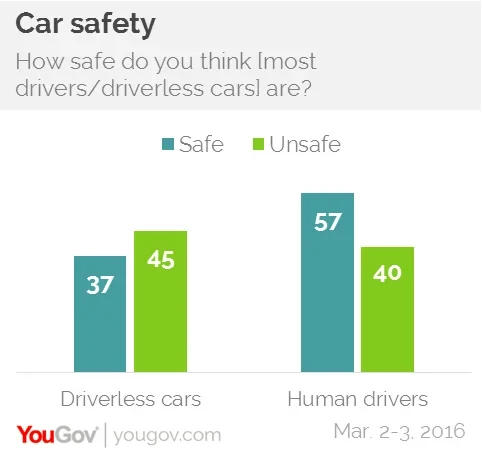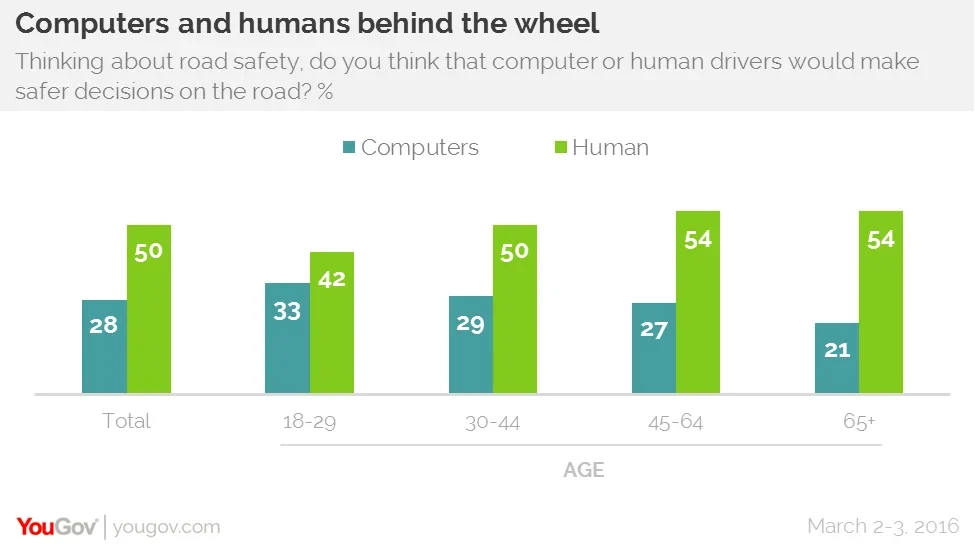Humans are widely seen as safer drivers than computers, but younger Americans are more likely to say driverless cars are safer

The development of driverless cars broke a new barrier this Valentine's Day. For the first time ever, after more than 1.4 million miles of testing, a driverless car made by Google was involved in a road traffic accident which was 'at least partially' the fault of the driverless car. The accident came only days after the National Highway Traffic Safety Administration said that, under federal law, the software controlling a driverless car could legally be considered a driver, paving the way for cars in which passengers have no steering wheel, brakes or gas pedal.
YouGov's latest research shows that Americans still tend to see humans as safer drivers than computers. A majority of Americans say that humans are safe drivers (57%), while 40% say human drivers are unsafe. Just over a third (37%) say that driverless cars are safe, while 45% think they are unsafe. Directly compared, a quarter of Americans (28%) think that computers are safer drivers than humans (50%).
The youngest Americans, those aged under 30, are the most likely to say that computers are safer (33%) and the least likely to say that humans are safer (42%). Over-65s (21%) are the least likely to say the computers would make safer decisions on the road.

Most Americans (56%) agree with the federal government that the manufacturers, not individual owners, of driverless cars should be considered liable for any mistakes that the driverless car commits on the road. 26% do believe, however, that the owner of the driverless car should be held at fault in any accident.
Full poll results can be found here and topline results and margin of error here.








